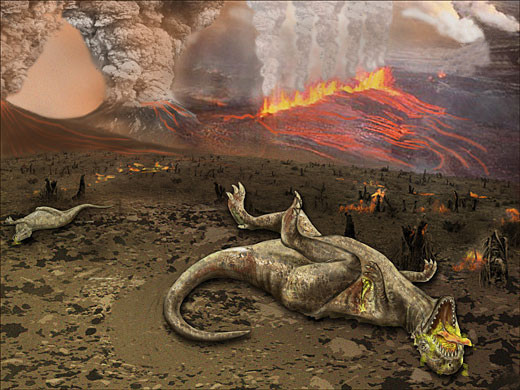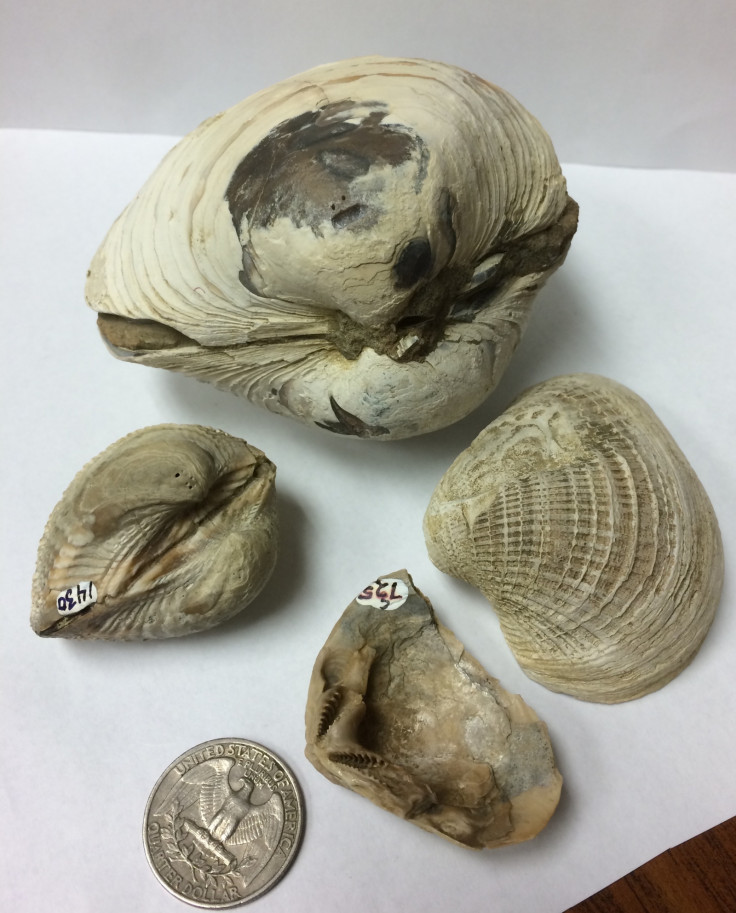Massive volcanic eruptions, global warming and an asteroid: How dinosaurs became extinct
Antarctic fossils show Deccan Traps eruption and meteorite delivered 'one-two punch' to dinosaurs.
The combination of massive volcanic eruptions and the asteroid impact is to blame for the dinosaurs going extinct, researchers have said. In what they describe as a "one-two punch", scientists have found the two events – taking place over a short period of time – produced global warming pulses that would wipe out the dinosaurs.
Dinosaurs are known to have gone extinct around 65 million years ago. What pushed them to the brink, however, is not entirely understood. The most prevalent theory is that the impact of the giant Chicxulub meteorite caused their demise. But increasingly research is pointing to a more complicated scenario, with other geological events and climate change playing a role.
The volcanic eruptions at Deccan Traps in India began around 250,000 years before the Chicxulub meteorite hit and continued for another 500,000 years after. The volcano complex released around 1.5sq km of lava, with toxic chemicals poisoning the atmosphere and oceans.

Some scientists believe the two events are linked, with the asteroid impact triggering the volcanic eruptions on the other side of the globe. Mark Richards, from UC Berkley, says the chance of the two events happening so close together are "miniscule". However, because of the close timing they two events are difficult to distinguish between when analysing the fossil record.
Researchers at the University of Michigan and the University of Florida have now looked at the impact of the two events by analysing complete fossil records from Seymour Island in Antarctica. Researchers were able to work out changes to global temperatures from the shells of molluscs from the time the dinosaurs went extinct.

Their findings, published in Nature Communications, show there were two pulses where temperatures rose rapidly over the course of a few hundred thousand years. The first spike (around 8C higher) coincided with the start of the Deccan Traps eruptions, while the second, smaller spike took place at a similar time to the asteroid strike.
Sierra Petersen, one of the study authors, said: "This new temperature record provides a direct link between the volcanism and impact events and the extinction pulses – that link being climate change."
The first warming event would have led to huge stress placed on ecosystems, making it all the more vulnerable when the second hit shortly after. "We find that the end-Cretaceous mass extinction was caused by a combination of the volcanism and meteorite impact, delivering a theoretical 'one-two punch'," Petersen said.
© Copyright IBTimes 2025. All rights reserved.






















